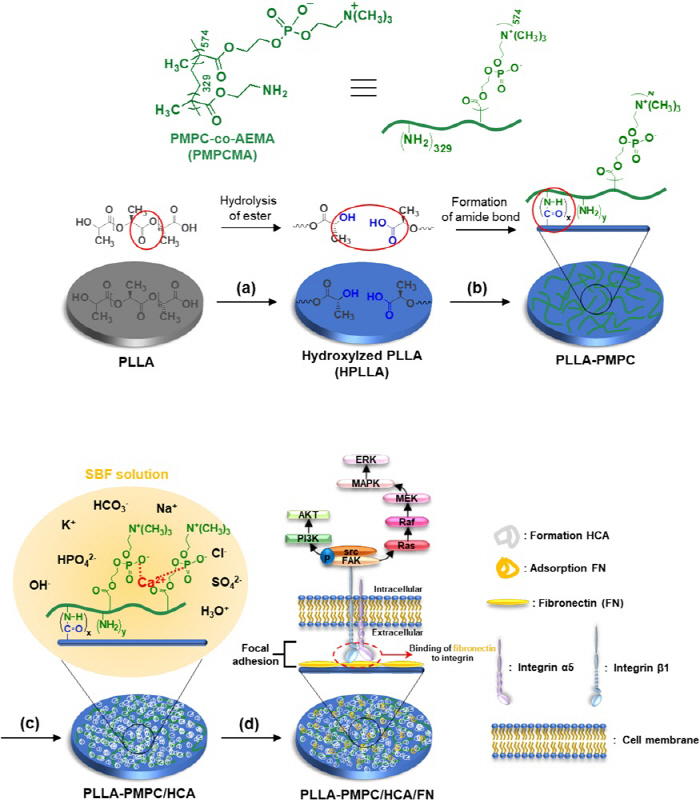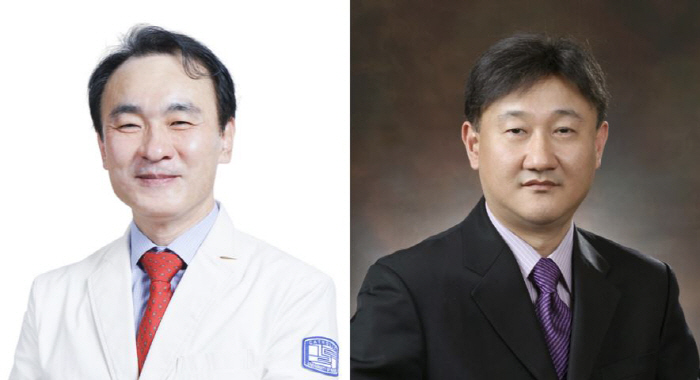Development of a high-functioning biomaterial platform that promotes bone regeneration...Expectations for the application of regenerative care
|
The research team published a paper on a technology that improves cell adhesion and biocompatibility by modifying the surface of poly-L-lactic acid (PLLA), a degradable polymer, and laid the foundation for the technology that can be widely applied to various tissue engineering-based treatment platforms, including bone tissue regeneration.
PLLA is attracting attention as a next-generation orthopedic material because it can be decomposed in vivo, but there was a limitation in that cell adhesion was low and new bone formation was delayed due to the hydrophobicity of the surface. To solve this problem, the research team combined a bio-friendly coating material (PPMPC) that can introduce a phosphate group on the surface of PLLA, thereby inducing artificial mineralization (HCA).
The research team confirmed that this modified PLLA-PMPC surface was immersed in body fluid-like liquid (SBF) to induce mineralization for 14 days, and then HCA crystals similar to natural bones were formed on the surface. This structure induces fibronectin adsorption, one of the extracellular matrix proteins, and significantly improves the adhesion and proliferation of MG-63 cells (human osteosarcoma-derived cells).
In addition, the expression of factors mediating cell adhesion was significantly increased on the surface of PLLA-PMPC where HCA was formed, and the cell proliferation-related signaling system was also activated. This resulted in a significant increase in the growth rate of MG-63 cells compared to conventional PLLA.
Professor Park Hae-kwan "This study suggests a strategy to create a cell-friendly environment by inducing surface mineralization in biocompatible polymers and can be applied to various tissue engineering treatment platforms including bone tissue regeneration in the future", and "We are currently conducting transplant-related research for this as part of the bio-industrial technology development project of the Ministry of Trade, Industry and Energy".
Meanwhile, the paper was recently published in the SCIE-level journal 'Journal of Industrial and Engineering Chemistry'.
|
This article was translated by Naver AI translator.





